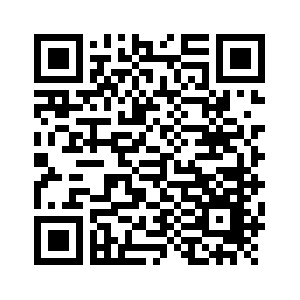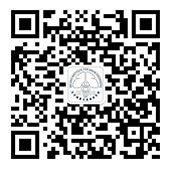
教育经历
1982年9月-1987年7月,四川成都,华西医科大学(现四川大学)药学院药学专业,学士 1987年7月-1990年7月,四川成都,华西医科大学药学院生药学专业,硕士 导师: 岳松健,谢成科 1996年4月-1999年7月,日本东京,日本大学医学部药理学教研室,医学博士 导师: 石川弘一 2000年4月-2003年3月,美国斯坦福大学医学院,生物科学系及神经外科系博士后 导师: Robert Sapolsky, Gary Steinberg
Education
April, 2000 – March, 2003 Postdoctoral fellow: Department of Biological Sciences and Neurosurgery, Stanford University, Stanford, CA Mentors: Robert Sapolsky, Gary Steinberg April, 1996 – July, 1999 Ph.D.: Nihon University School of Medicine, Tokyo, Japan Mentor: Koichi Ishikawa Sep, 1987 – July, 1990 M.Sc.: West China University of Medical Sciences School of Pharmacy, Chengdu, China Mentor: Chengke Xie Sep,1982 – July, 1987 B.S.: West China University of Medical Sciences School of Pharmacy, Chengdu, China
职业及工作经历
1990年8月-1992年2月 北京市药品检验所,药师 1992年3月-1995年3月 北京市药品检验所,主管药师 1995年4月-1996年3月 北京信诺微粒制药有限公司,药物开发部, 经理 1999年4月-2000年3月 日本东京,日本大学医学部药理学教研室,特别研究员 2003年4月-2005年3月 斯坦福大学医学院神经外科系,研究助理 2005年4月-2006年3月 斯坦福大学医学院神经外科系,讲师 2006年2月-2013年10月 斯坦福大学神经外科系,助理教授 2013年11月-2018年9月 斯坦福大学医学院神经外科,副教授 2018年10月-2021年6月 美国斯坦福大学医学院神经外科,教授 2022年5月9日-至今 首都医科大学北京脑重大疾病研究院,教授
Professional Experience
May, 2021 – Present Professor, Beijing Institute of Brain Disorder, Capital Medical University Oct., 2018 – June, 2021 Professor, Department of Neurosurgery, Stanford University Oct., 2013 – Sep., 2018 Associate Professor, Department of Neurosurgery, Stanford University Feb., 2006 – Sep., 2013 Assistant Professor, Department of Neurosurgery, Stanford University Feb., 2005 – Jan., 2006 Instructor, Department of Neurosurgery and Biological Sciences, Stanford University March, 2003 – Jan., 2005 Research Associate, Department of Neurosurgery and Biological Sciences,Stanford University April, 1996 – Mar, 2000 Research fellow, Department of Pharmacology, Nihon University, Tokyo, Japan March,1995 – March,1996 Director, Department of Drug Development, Beijing Sino-Ultramicro Pharmaceutical Corporation Feb., 1992 – March, 1995 Pharmacist, Department of Drug Analysis, Beijing Municipal Institute for Drug Control, Beijing, China Aug., 1990 – Feb., 1992 Researcher/ Pharmacist, Department of Pharmacognosy,Beijing Municipal Institute for Drug Control, Beijing, China
研究兴趣和目标
赵恒教授主要从事卒中脑损伤的神经病理研究,并探索新的脑保护措施和治疗药物。他的研究哲学是以整体论、而非还原论的方法来研究卒中脑损伤以及卒中导致的多器官损伤。基于这一指导思想,他在世界上率先开展了原位缺血后适应(ischemic postconditioning)和远隔适应(Remote conditioning)对卒中脑损伤保护作用的研究,并研究免疫系统和中枢神经系统的交互作用。赵恒教授的研究以临床转化为目的。在斯坦福大学期间他的研究长期得到美国NIH和AHA的基金资助。在加入北京脑重大疾病研究院后,赵恒课题组继续研究远隔缺血适应和缺血后适应的神经保护机制,寻找这些保护模型的最佳临床转化参数,并鉴定和神经炎症反应机制相关的治疗靶标。另外,赵恒课题组也开始寻找新的脑保护模型,并寻求神经炎症领域的理论突破。 除了研究卒中脑损伤和保护外,赵恒教授还研究视网膜缺血模型对视网膜神经组织的损伤和保护,研究视网膜缺血再灌注模型中外周免疫细胞和视网膜神经损伤的关系。赵恒教授也对围手术期医学、特别是对术后认知功能障碍(POCD)感兴趣,研究免疫细胞对术后认知功能障碍的影响和远隔缺血适应对术后认知功能障碍的保护作用。 赵恒课题组主要采用小鼠和大鼠模型,以及细胞培养,结合临床样本就以上研究方向展开研究。主要技术手段包括单细胞基因测序、质谱流式细胞术、流式细胞术、高通量RT-qPCR、共聚焦显微镜等研究卒中后神经免疫和炎症细胞分子机制。 赵恒课题组和院内同事和多个大学和研究所展开了广泛和深入的合作,寻求在卒中保护机制和临床转化模型以及理论创新方面取得新的突破。
Research interests and goals
Professor Zhao focuses primarily on neuropathological studies of stroke brain injury, as well as the exploration of new brain protection methods and therapeutic medications for stroke. His research philosophy emphasizes a holistic, as opposed to reductionist, approach to the study of stroke-related brain injury and multiple organ dysfunction. On the basis of this guiding philosophy, he has pioneered research into the protective effects of ischemia postconditioning and remote conditioning on stroke brain injury, as well as the interplay between the immune system and the central nervous system effect. The goal of Professor Zhao's study is clinical application. His research has been funded by the US NIH and AHA during his time at Stanford University. After joining the Beijing Institute of Brain Disorders, Zhao's research team has continued to investigate the neuroprotective mechanisms of remote ischemic conditioning and ischemic postconditioning, search for the optimal clinical transformation parameters for these protective models, and identify mechanisms related to neuroinflammatory response therapeutic target. In addition, Zhao's research team has begun to seek out novel models of brain protection and theoretical advances in the field of neuroinflammation. Professor Zhao also investigates the damage and protection of retinal nerve tissue in retinal ischemia models and the interaction between peripheral immune cells and retinal nerve damage in retinal ischemia-reperfusion models. Prof. Zhao is also interested in perioperative medicine, particularly postoperative cognitive dysfunction (POCD), and investigates the impact of immune cells on postoperative cognitive dysfunction and the protective effects of distant ischemia conditioning on POCD. The research group of Professor Zhao primarily employs mice and rat models, cell culture, and clinical samples to investigate the aforementioned study objectives. To examine the molecular mechanism of neuroimmunity and inflammatory cells after stroke, single-cell gene sequencing, mass cytometry, flow cytometry, high-throughput RT-qPCR, confocal microscopy, etc. are the primary technological tools. The research group and colleagues of Professor Zhao have initiated a broad and in-depth collaboration with numerous universities and research institutes to seek new discoveries in mechanisms for stroke protection, clinical translation models, and theoretical developments.
其他任职(Other Professional Positions)
国际老龄化与疾病学会执行委员会成员 Member of Execute Committee of International Society on Aging and Disease ISOAD 杂志编辑(Journal Editorial Board): Theranostics (IF 11.58) Aging and Disease (IF 9.68) Stroke and Vascular Neurology (IF 9.89) Translational Stroke Research (IF 6.83) PLoS One (IF 3.75) Conditioning Medicine (IF 1.3)
代表性研究成果
1. Zhao, H*, Sapolsky, R.M, Steinberg, G.K., Interrupting reperfusion as a stroke therapy - Ischemic postconditioning reduces infarct size after focal ischemia in rats, J Cereb Blood Flow Metab, 2006, Sep;26(9):1114-21. (在卒中领域首次报道缺血后适应的保护作用,The first paper studying ischemic postconditioning in stroke research). 2. Ren, C, Gao, X, Steinberg, GK, Zhao, H*, Limb remote-preconditioning protects against focal ischemia in rats and contradicts the dogma of therapeutic time windows for preconditioning, Neuroscience, 2008 Feb 19; 151(4):1099-1103. (在卒中领域首次报道远隔缺血预适应的保护作用,The first paper studying remote preconditioning in stroke research). 3. Ren, C, Ran, Z, Gao, X, Wei, D, Chen X, Zhao, H*, remote postconditioning reduces infarct size after focal ischemia in rats, Brain Research, 2009 Sep 8;1288:88-94. (在卒中领域首次报道远隔缺血后适应的保护作用,The first paper studying remote postconditioning in stroke research). 4. Zhao, H, Yenari, M.A., Sapolsky, R.M., Steinberg, G.K., Mild post-ischemic hypothermia prolongs the time window for gene therapy by inhibiting cytochrome c release, Stroke. 2004 Feb;35(2):572-7 (斯坦福大学新闻报道该研究使用亚低温可以延长基因治疗时间窗的潜在价值,Stanford University News reported that the study used mild hypothermia to extend the time window of gene therapy). 5. Ren, C, Gao, X, Gang, Niu, Zhimin Yan, Chen X, Zhao, H*, Delayed postconditioning protects against focal ischemic brain injury in rats,PLoS ONE. 2008; 3(12):e3851.(首次建立缺血后适应迟发治疗时间窗的概念,For the first time to report the concept of delayed postcoditioning). 6. Weirong Fang, Xuan Zhai, Dong Han, Xiaoxing Xiong, Tao Wang, Xun Zeng, Kohji Aoyama, Ronald L Dalman, Baohui Xu, Heng Zhao*, CCR2-dependent monocytes/macrophages exacerbate acute brain injury but promote functional recovery after ischemic stroke in mice, Theranostics, 2018, 8(13):3530-3543.(证实单核细胞来源的巨噬细胞促进卒中急性脑损伤但是提高晚期功能恢复,proved that monocyte derived macrophages promote acute brain injury but improve delayed functional recovery). 7. Gu, L, Xiong, X, Zhang, H, Xu, B, Zhao, H*, Distinctive effects of T cell subsets in neuronal injury induced by co-cultured splenocytes in vitro and by in vivo stroke in mice, Stroke, 2012 Jul;43(7):1941-6. (揭示了不同T细胞亚群在卒中脑损伤中的不同作用,Revealed that T cell subsets have different effects in brain injury induced by stroke). 8. Yifang Fan, Xiaoxing Xiong, Yongming Zhang, Dongmei Yan, Zhihong Jian, Baohui Xu, Heng Zhao*, MKEY, a Peptide Inhibitor of CXCL4-CCL5 Heterodimer Formation, Protects Against Stroke in Mice, J Am Heart Assoc. 2016 Sep 15;5(9). (证明可以通过抑制CXCL4-CCL5复合物而减少巨噬细胞浸润,保护脑组织(Found out that the peptide Inhibitor of CXCL4-CCL5 Heterodimer Formation can block the infiltration of macrophage and attenuate brain injury after stroke). 9. Yan Wang, Haojie Jin, Yafang Wang, Yang Yao, Cuixia Yang, Jihong Meng, Xiaomu Tan, Yu Nie, Lixiang Xue, Baohui Xu, Heng Zhao, Feng Wang, Sult2b1 deficiency exacerbates ischemic stroke by promoting pro-inflammatory macrophage polarization in mice, Theranostics 2021; 11(20):10074-10090(证实了中性粒细胞在卒中急性脑损伤中的破坏作用,proved that neutrophils play an important role in acute brain injury). 10. Yao Y, Li Y, Ni W, Li Z, Feng L, Wang Y, Meng J, Zhao H. Systematic Study of Immune Cell Diversity in ischemic postconditioning Using High-Dimensional Single-Cell Analysis with Mass Cytometry. Aging Dis. 2021 Jun 1;12(3):812-825. (使用质谱流式细胞术阐明缺血后适应的卒中保护机制,Using Mass Cytometry to clarify the protective mechanism of ischemic postconditioning against stroke).


